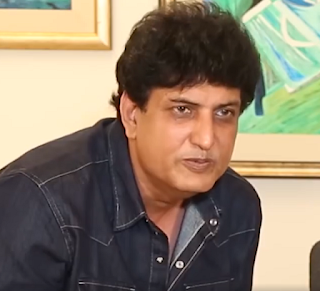Women’s Human Rights
What are women’s
human rights?
Women’s rights are the fundamental human rights that were
enshrined by the United Nations for every human being on the planet nearly 70
years ago. These rights include the right to live free from violence, slavery,
and discrimination; to be educated; to own property; to vote; and to earn a
fair and equal wage.
As the now-famous saying goes, “women’s rights are human
rights.” That is to say, women are entitled to all of these rights. Yet almost
everywhere around the world, women and girls are still denied them, often
simply because of their gender.
Winning rights for women is about more than giving
opportunities to any individual woman or girl; it is also about changing how
countries and communities work. It involves changing laws and policies, winning
hearts and minds, and investing in strong women’s organizations and movements.
Global Fund for Women exists to support the tireless and
courageous efforts of women’s groups who work every day to win rights for women
and girls. These groups are working to ensure women can own property, vote, run
for office, get paid fair wages, and live free from violence – including domestic
violence, sexual assault, and harmful practices such as female genital
mutilation.
What rights do we
stand for?
We want every woman and girl to realize the rights that are
enshrined in the Universal Declaration
of Human Rights. We also stand for other rights that are vital for
women’s equality. We stand for a woman’s right to decide if and when she has
children, and to have high-quality health care that means she won’t die in
pregnancy or during childbirth. We know female genital mutilation is a
violation of girls’ rights, and must be eliminated. And we stand for the right
of every woman to live equally and free from discrimination, no matter her
sexuality or identity.
We support two critical documents for women’s rights that
have followed the UN declaration. The Convention on the Elimination of all Forms of
Discrimination Against Women (CEDAW), an international bill of rights for women, requires
governments to end gender discrimination and affirms women’s rights to health
services, including family planning. The Beijing
Declaration and Platform for Action, adopted in 1995 at the UN’s
Fourth World Conference in Beijing, was a rallying cry to embed gender equality
and women’s rights in every facet of life.
Women’s rights and
the Global Goals
The UN Millennium Development Goals set specific targets to
reduce poverty, including targets for increased gender equality in education,
work, and representation. UN Women found that progress was uneven. Globally,
more women are now in school and work. Yet girls are still more likely than
boys to be out of school (particularly at the secondary level). And although
the number of women in elected office has risen, they are still only 21.8
percent of parliamentarians. What’s more, women’s rights remain at risk in many
areas not addressed in the millennium goals – from violence against women to
sexual and reproductive rights. And women who are already marginalized because
of their race, caste, sexuality, income, or location see the fewest gains of
all.
The new Sustainable Development Goals (SDGs) hold real
promise to embed advances in women’s rights, and include a specific goal (Goal
5) for gender equality. Goal 5 is more broad-based than the last gender goal
and includes targets on ending gender-based violence, eliminating child
marriage and female genital mutilation, and ensuring access to sexual and
reproductive health. It also includes equal access to education, expanding
women’s economic opportunities, and reducing the burdens of unpaid care work on
women and girls. Now it is up to all of us to hold governments accountable for
their commitments and make sure the goals are met. Involving women – and funding
the solutions of grass-roots women’s groups – will be critical to success.
What does the future
of women’s rights look like?
The future of global women’s rights is at stake.
The U.S. administration’s proposed cuts to foreign aid and stringent
policies—from abortion and refugee resettlement to climate change— pose a
direct threat to the health, dignity, and well-being of women and girls
everywhere. We must reflect: Will women globally lose hard-won rights, or will
the backlash instead catalyze new wins?
This moment calls for energizing new efforts and focus on
strengthening women’s movements to help lead the charge for social change on
the most pressing issues of our time. Global Fund for Women is committed to
turning these challenges into opportunities for women to assert their
leadership, action, and voice. By 2020, Global Fund for Women will ensure that
movements for women’s rights are powerful, influential, and achieving lasting
gains. Now is the time to
stand with the global women’s movement.
Global Fund for Women is working for a world where every
woman and girl can realize and enjoy her human rights.
Only when women and girls have full access to their rights –
from equal pay and land ownership rights to sexual rights, freedom from
violence, access to education, and maternal health rights – will true equality
exist. Only when women have taken leadership and peacemaking roles and have an
equal political voice will economies and countries be transformed. And only
then will all women and girls have the self-determination they are entitled to.




Comments
Post a Comment